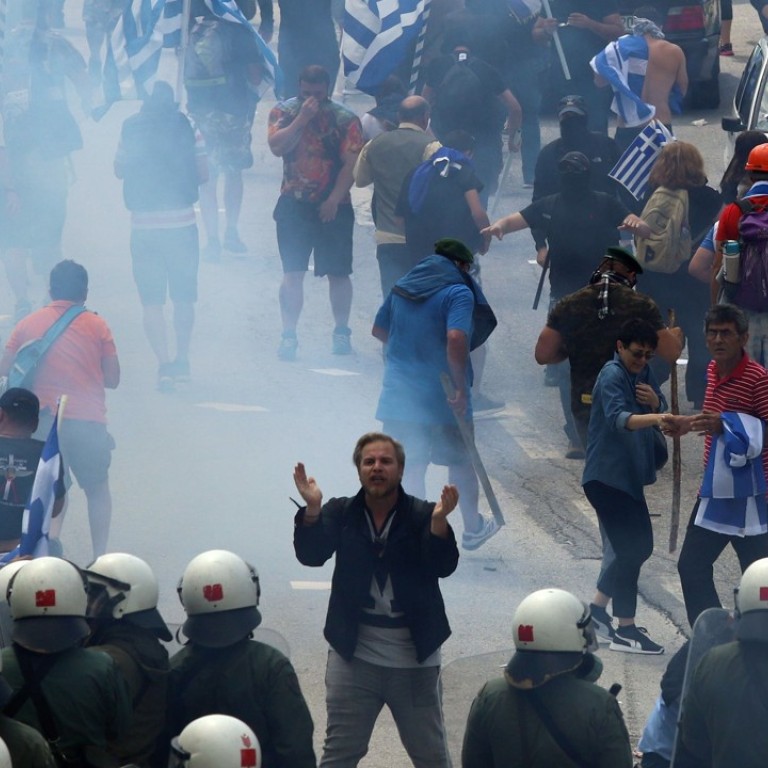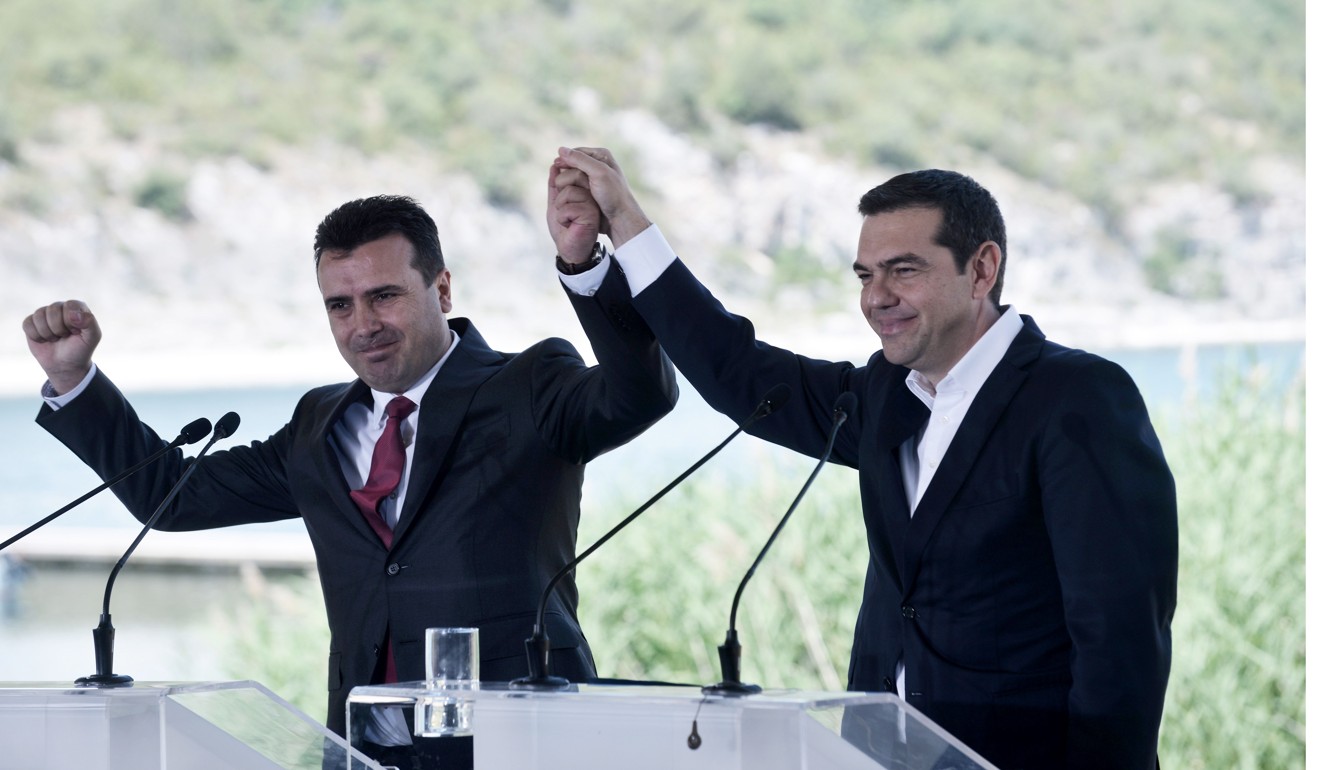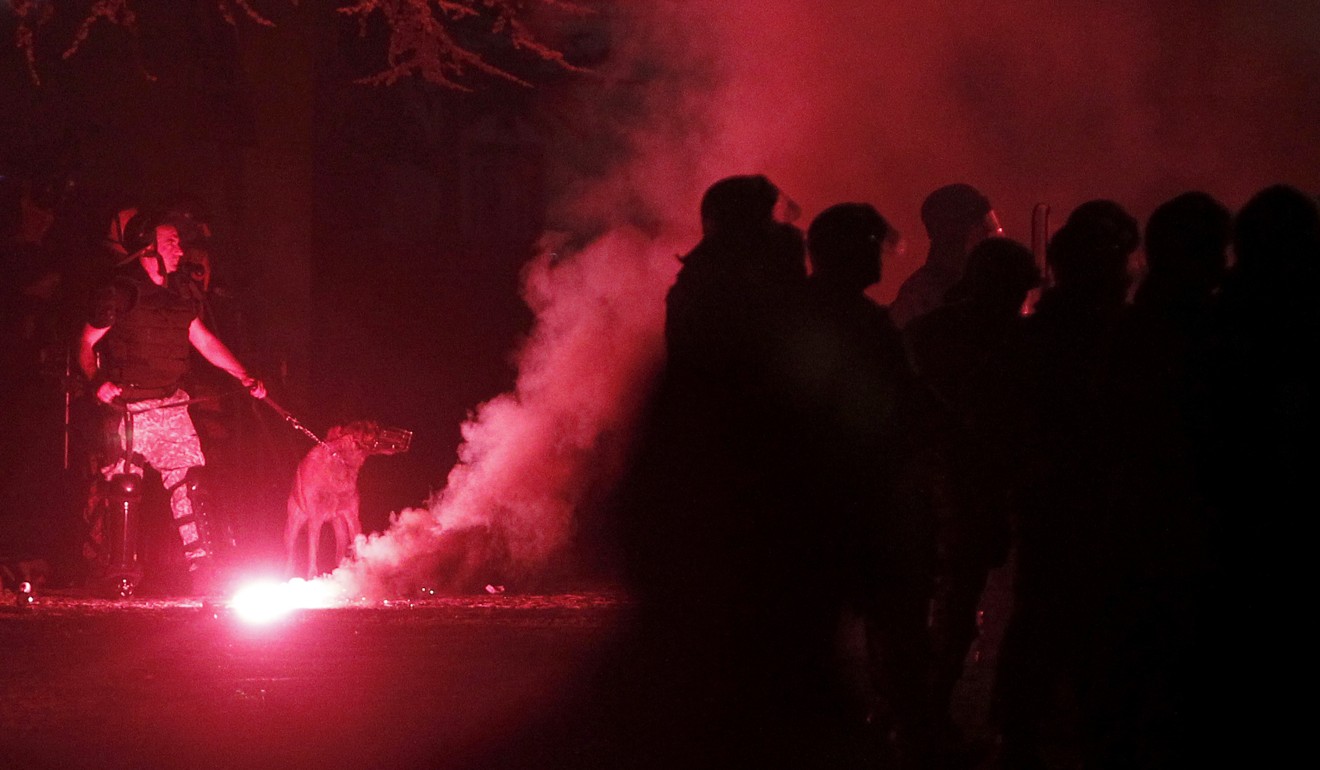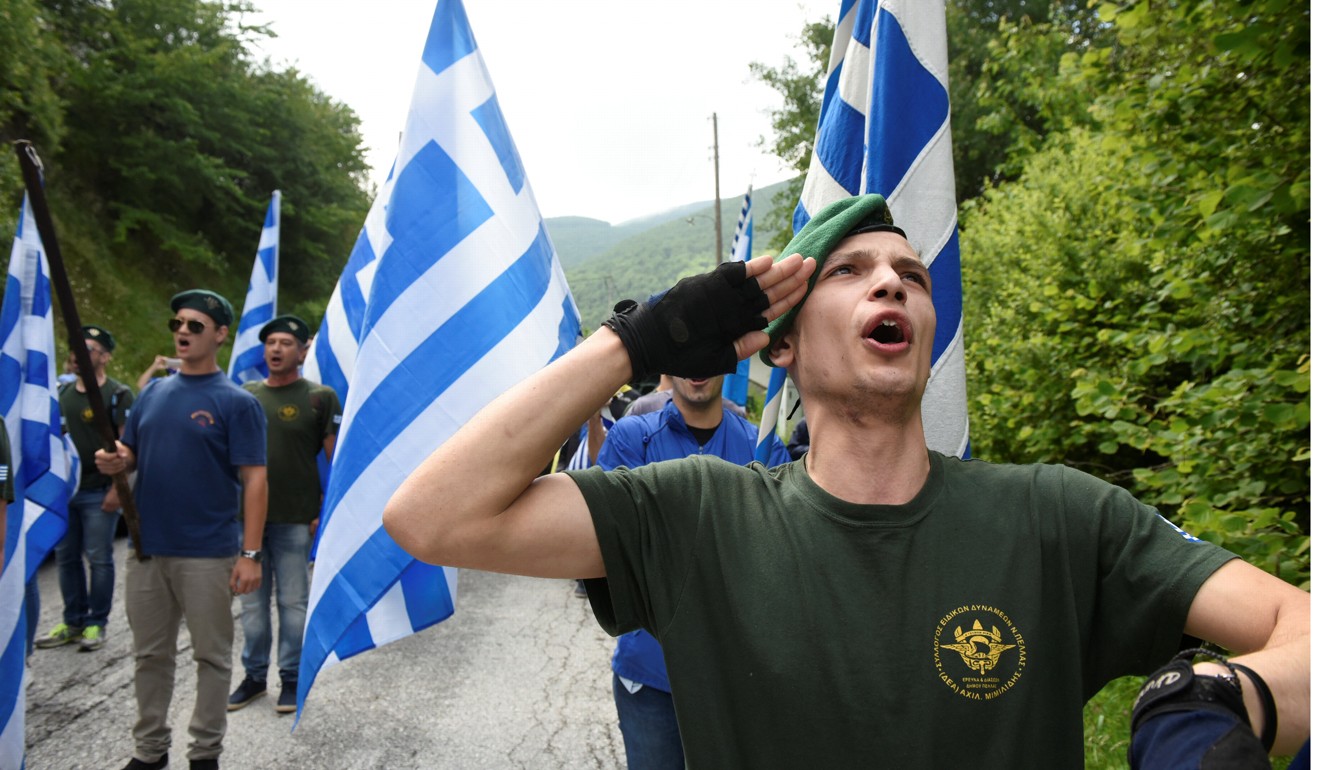
Greece and Macedonia reach deal on name, but nationalists on both sides are furious
The decision will see Macedonia officially renamed the Republic of Northern Macedonia, appeasing Athens
Greece and Macedonia signed an agreement Sunday to end their long-running dispute about the name Macedonia, paving the way for the former Yugoslavian republic to join Nato and approach EU membership – but also infuriating nationalists on both sides.
The decision will mean Macedonia will officially be named the Republic of Northern Macedonia, appeasing Greece, which has a province called Macedonia and considered the other country’s use of that name an affront and imposition.

Macedonian President Gjorge Ivanov said he would veto the deal, and protests against the name change turned violent late Sunday in Skopje, the capital of the nation of Macedonia.
Injuries were reported as police deployed flash grenades and tear gas to disperse demonstrators opposed to the new name. Several demonstrators complained of breathing problems.
Some of the demonstrators threw rocks and bottles at police securing the country’s parliament, prompting the response, A1 TV reported.


“This is a historic step,” Greek Prime Minister Alexis Tsipras said at the ceremony. “Our countries are leaving the past behind and are looking to the future.”
“What a beautiful, glorious and historic day,” his Macedonian counterpart, Zoran Zaev, said before the signing.
Greece and Macedonia have been at odds regarding the latter’s name since Macedonia emerged from the disintegrating former Yugoslavia in 1991. Negotiations took place under United Nations auspices beginning in 1995.
Greece insisted that the name Macedonia belongs to its northern province and accused Skopje of usurping Hellenic history, and even accused it of harbouring territorial aspirations.
Under the new deal – announced Tuesday by Tsipras and Zaev – Greece allowed its neighbour to retain the key part of its name, but with a geographic qualifier. After a complex procedure, which will take months, the country will become the Republic of Northern Macedonia.
Greece will also immediately end its opposition to an invitation for Macedonia to join Nato. Greece will also allow the European Union to open membership talks with Skopje.
Macedonia now needs to ratify the deal in the parliament and confirm it with a referendum, presumably in September, and put the name change into its constitution. Only after that will Greece also ratify it, as well Macedonia’s membership in Nato.
Both Tsipras and Zaev have faced an uphill struggle to get the deal this far, with the Greek premier undergoing – and surviving – a no-confidence motion launched by the opposition over the name deal.
Macedonians are not the only ones enraged by the deal.
Greeks had been protesting in Athens since Friday. On Sunday, Greek police fired tear gas at a crowd protesting on their side of the border, not far from the signing ceremony.
The name deal has also polarised Macedonian society. According to Simonida Kacarska, head of the Skopje-based European Policy Institute, around 45 per cent of Macedonians would sacrifice Nato and EU membership for the name, while nine out of 10 Albanians would not.
Macedonians are the ethnic majority, but Albanians make up between one-quarter and one-third of the 2.1 million inhabitants.
“The dispute is perceived as touching on issues of identity and self-determination and is highly polarising and charged with emotions,” Kacarska said.

